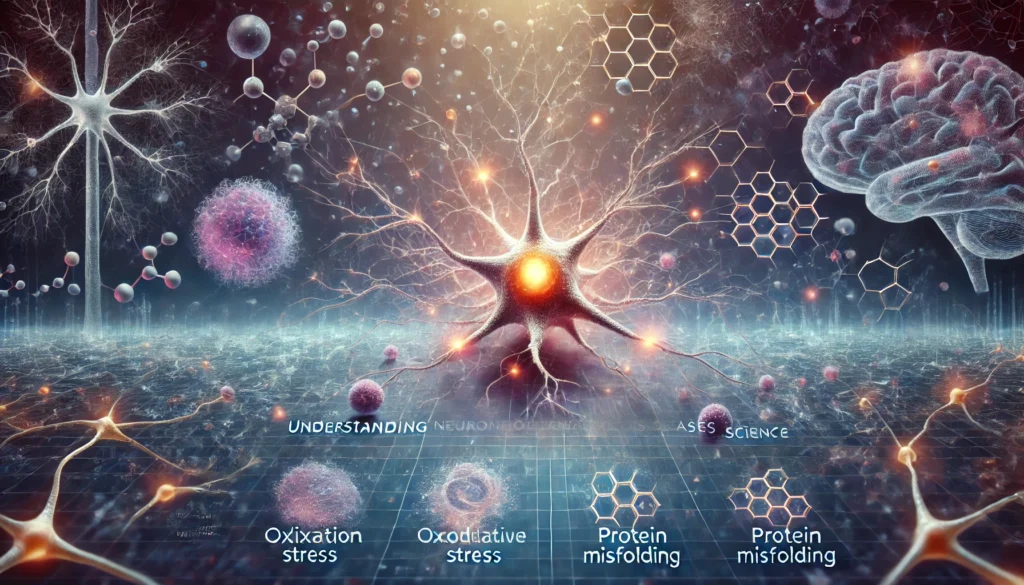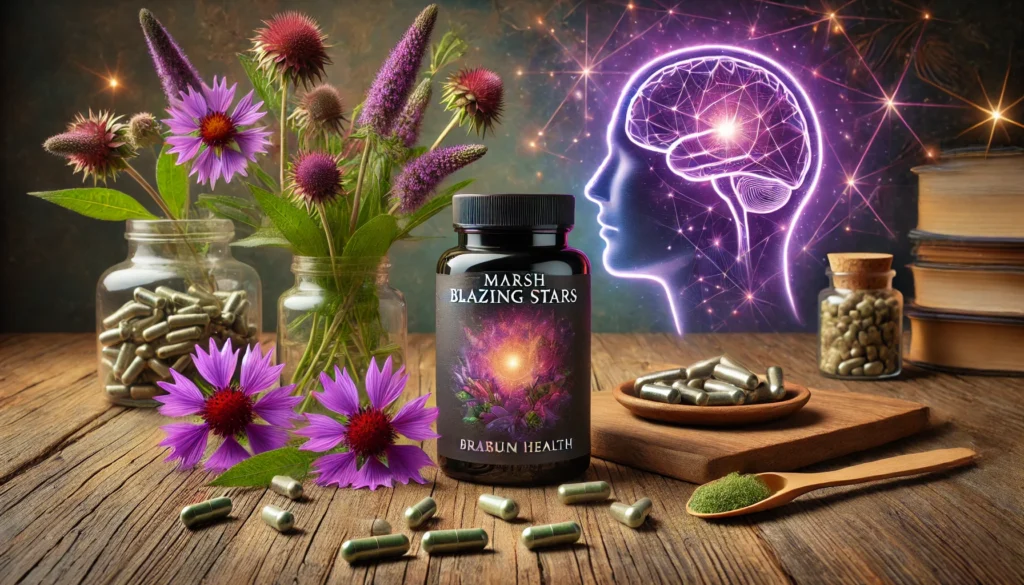Marsh Blazing Star, scientifically known as Liatris spicata, is a perennial herb native to North America. It has long been utilized in traditional medicine for various health benefits, with a growing interest in its potential nootropic properties. Known for its striking purple flower spikes, Marsh Blazing Star is commonly used in herbal remedies to support cognitive function, energy levels, and overall well-being. This article delves into the chemistry, physiological mechanisms, potential nootropic benefits, dosage guidelines, side effects, interactions with other supplements and medications, and safety considerations associated with Marsh Blazing Star supplementation.
You May Also Like:
Sources of Marsh Blazing Star
Marsh Blazing Star is primarily found in wetland areas across North America, particularly in the central and eastern parts of the United States. It thrives in moist soils and has been traditionally used by Native American tribes for medicinal purposes, including as a remedy for gastrointestinal issues, inflammation, and pain. While the plant’s roots, rhizomes, and flowers are all utilized in herbal formulations, it is the root extracts that are typically used for nootropic purposes.
In modern herbal medicine, Marsh Blazing Star is available in several forms, including capsules, tinctures, teas, and dried extracts. The root extract is particularly prized for its purported cognitive-enhancing effects, and it has gained attention in the nootropic community as a potential supplement for improving brain function.

Chemistry of Marsh Blazing Star
The active compounds in Marsh Blazing Star include flavonoids, glycosides, saponins, and essential oils. These bioactive constituents are believed to contribute to the herb’s therapeutic effects.
- Flavonoids: These plant compounds have been shown to possess antioxidant, anti-inflammatory, and neuroprotective properties. Flavonoids are known to support brain health by reducing oxidative stress and inflammation, two major contributors to cognitive decline and neurodegenerative diseases.
- Glycosides: These compounds can influence various biological systems in the body. Some glycosides have shown potential in promoting brain health by improving blood circulation and protecting neurons from damage.
- Saponins: Known for their ability to modulate immune responses, saponins in Marsh Blazing Star may play a role in enhancing the brain’s ability to deal with oxidative stress and inflammation.
- Essential Oils: The volatile oils present in Marsh Blazing Star possess calming and mood-enhancing effects, which may also contribute to its cognitive benefits.
Physiological Mechanisms of Marsh Blazing Star in the Body and Brain
Marsh Blazing Star’s potential as a nootropic stems from its complex array of bioactive compounds, which are believed to influence the brain in several ways. Here are the primary mechanisms through which it may act:
- Antioxidant and Neuroprotective Effects: As mentioned earlier, Marsh Blazing Star contains flavonoids, which are potent antioxidants. Antioxidants protect the brain from oxidative damage, which is a key factor in the development of neurodegenerative diseases such as Alzheimer’s and Parkinson’s disease. By neutralizing free radicals, these compounds may help reduce cognitive decline and protect neuronal integrity.
- Anti-Inflammatory Action: Chronic inflammation is another significant contributor to cognitive impairment and neurodegeneration. The glycosides and saponins in Marsh Blazing Star have anti-inflammatory properties that may help mitigate this issue. By reducing inflammation in the brain, Marsh Blazing Star could potentially improve focus, memory, and overall cognitive function.
- Improved Circulation: Some studies suggest that the compounds in Marsh Blazing Star may support healthy circulation, including cerebral blood flow. This could enhance nutrient and oxygen delivery to the brain, which is essential for optimal cognitive performance. Better circulation can also lead to more effective removal of metabolic waste products, further contributing to brain health.
- Neurotransmitter Modulation: The essential oils and other bioactive compounds in Marsh Blazing Star may interact with the body’s neurotransmitter systems. While specific studies on this mechanism are limited, some compounds in the herb may enhance the levels of certain neurotransmitters, such as acetylcholine and dopamine, which are essential for cognitive processes such as learning, memory, and mood regulation.

Nootropic Benefits of Marsh Blazing Star
While research on Marsh Blazing Star’s nootropic effects is still in its early stages, preliminary evidence suggests several potential cognitive benefits. These include:
- Enhanced Memory and Learning: By supporting antioxidant defenses, reducing inflammation, and potentially increasing cerebral blood flow, Marsh Blazing Star may improve both short-term and long-term memory. This makes it an attractive candidate for individuals seeking cognitive enhancement.
- Reduced Mental Fatigue: The improved circulation and energy metabolism associated with Marsh Blazing Star may reduce mental fatigue. By providing the brain with more efficient access to oxygen and nutrients, this herb could help individuals maintain focus and concentration for longer periods.
- Mood Enhancement: The calming effects of Marsh Blazing Star may help reduce anxiety and stress, which can hinder cognitive performance. By improving mood and reducing negative emotional states, it may indirectly support better mental clarity and cognitive function.
- Neuroprotection Against Cognitive Decline: Marsh Blazing Star’s antioxidant and anti-inflammatory properties make it a potentially useful supplement for protecting the brain from age-related cognitive decline. The herb may help mitigate the effects of oxidative stress, one of the primary drivers of neurodegeneration.

Dosage and Supplementation Guidelines
Given the limited research on Marsh Blazing Star as a nootropic, there are no established dosage guidelines specifically for cognitive enhancement. However, based on traditional use and the general pharmacological properties of the herb, the following general recommendations can be made:
- Standard Dosage: The typical dosage of Marsh Blazing Star root extract ranges from 300 mg to 500 mg per day. This is usually taken in divided doses, with one serving in the morning and one in the evening.
- Nootropic Dosage: For nootropic purposes, individuals may start with a lower dose of 200 mg per day and gradually increase it based on personal tolerance and desired effects. Higher doses should only be taken under the supervision of a healthcare provider.
- Supplement Forms: Marsh Blazing Star supplements are available in capsules, tinctures, and powdered extracts. The most common and convenient form for supplementation is the capsule, but tinctures may offer faster absorption.
Side Effects and Safety
While Marsh Blazing Star is generally considered safe when used at recommended dosages, some individuals may experience mild side effects, especially at higher doses. These side effects include:
- Gastrointestinal Distress: Some individuals may experience mild digestive issues, such as nausea or an upset stomach, when taking Marsh Blazing Star supplements. To minimize this, it is advised to take the supplement with food.
- Allergic Reactions: Though rare, allergic reactions to Marsh Blazing Star can occur. Symptoms may include rashes, itching, or difficulty breathing. Anyone experiencing these symptoms should discontinue use and seek medical attention immediately.
- Drowsiness: Due to its calming effects, Marsh Blazing Star may cause drowsiness in some individuals. It is advised to avoid operating heavy machinery or driving after taking the supplement, particularly in the first few days of use as your body adjusts.

Interactions with Other Supplements and Medications
Marsh Blazing Star may interact with certain supplements or medications, potentially altering their effectiveness or increasing the risk of side effects. Individuals should be aware of the following interactions:
- Blood Thinners: Marsh Blazing Star may have a mild blood-thinning effect, which could enhance the action of anticoagulant medications like warfarin. This may increase the risk of bleeding, especially in individuals on long-term blood-thinner therapy.
- Sedatives and Sleep Aids: Since Marsh Blazing Star has calming and mild sedative effects, combining it with other sedatives, such as benzodiazepines or sleep aids, may lead to excessive drowsiness or sedation.
- Anti-inflammatory Medications: Due to its anti-inflammatory properties, Marsh Blazing Star may enhance the effects of nonsteroidal anti-inflammatory drugs (NSAIDs) such as ibuprofen. Caution should be exercised to avoid excessive suppression of inflammation, which is crucial for immune function.
- Cognitive-Enhancing Nootropics: When combined with other nootropics, such as caffeine or L-theanine, Marsh Blazing Star may enhance cognitive performance by providing a more balanced approach to energy metabolism and brain health. However, individuals should monitor their response and consult a healthcare provider if unsure about combining supplements.
Risks for Individuals with Certain Health Conditions
While Marsh Blazing Star is generally considered safe, individuals with certain health conditions should approach supplementation with caution:
- Pregnancy and Breastfeeding: There is insufficient research on the safety of Marsh Blazing Star during pregnancy and breastfeeding. Pregnant or breastfeeding women should avoid using this supplement unless advised by a healthcare provider.
- Blood Disorders: Individuals with bleeding disorders or those taking blood-thinning medications should avoid Marsh Blazing Star or consult with a healthcare provider before using it due to its potential blood-thinning effects.
- Liver and Kidney Disease: Marsh Blazing Star has not been extensively studied in individuals with liver or kidney disease. If you have any liver or kidney issues, consult a healthcare provider before using this supplement.
Conclusion: Should You Consider Marsh Blazing Star as a Nootropic?
Marsh Blazing Star holds promise as a nootropic due to its antioxidant, anti-inflammatory, and mood-enhancing effects. While research is still in its early stages, the plant’s potential to support brain health, improve memory, and protect against cognitive decline makes it an exciting candidate for cognitive enhancement. However, due to the limited scientific evidence, it is essential to approach this herb with caution and consult a healthcare provider before beginning supplementation, especially if you are taking other medications or supplements.
Overall, if you’re looking for a natural supplement to boost cognitive performance, Marsh Blazing Star may be a beneficial addition to your regimen, but it should be used as part of a balanced approach to mental health and wellness.

References:
- Marsh Blazing Star – Uses, Side Effects, and More. Retrieved from: https://www.webmd.com/vitamins/ai/ingredientmono-173/marsh-blazing-star
- Oxidative Stress in Alzheimer’s and Parkinson’s Diseases: Insights from the Yeast Saccharomyces cerevisiae. Retrieved from: https://pmc.ncbi.nlm.nih.gov/articles/PMC3371773/
- Unique and interactive effect of anxiety and depressive symptoms on cognitive and brain function in young and older adults. Retrieved from: https://pmc.ncbi.nlm.nih.gov/articles/PMC4222514/
- Oxidative Damage and Cognitive Dysfunction: Antioxidant Treatments to Promote Healthy Brain Aging. Retrieved from: https://pmc.ncbi.nlm.nih.gov/articles/PMC4392815/
Important Note: The information contained in this article is for general informational purposes only, and should not be construed as health or medical advice, nor is it intended to diagnose, prevent, treat, or cure any disease or health condition. Before embarking on any diet, fitness regimen, or program of nutritional supplementation, it is advisable to consult your healthcare professional in order to determine its safety and probable efficacy in terms of your individual state of health.
Regarding Nutritional Supplements Or Other Non-Prescription Health Products: If any nutritional supplements or other non-prescription health products are mentioned in the foregoing article, any claims or statements made about them have not been evaluated by the U.S. Food and Drug Administration, and such nutritional supplements or other health products are not intended to diagnose, treat, cure, or prevent any disease.


